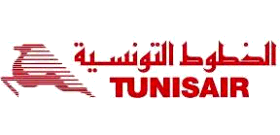 Tunisair Launches USD 50 Million Private Debt Program to Bolster Financial Stability
Tunisair Launches USD 50 Million Private Debt Program to Bolster Financial Stability
In a bold move to address immediate cash flow challenges and ensure continuity of operations, Tunisair, Tunisia’s national carrier, has initiated a private bond program totaling 150 million dinars (approximately USD 50 million). This strategic financial lifeline is designed to stabilize the airline’s liquidity and support ongoing restructuring efforts amid a landscape of operational hurdles and mounting short-term obligations.
The first tranche of this initiative, dubbed “Tunisair 2025-1,” targets 30 million dinars (around USD 10 million). The bonds offer investors a fixed interest rate of 10% over a seven-year period, including a one-year grace period before principal repayments begin. This structure reflects Tunisair’s commitment to both transparency and prudent risk management, as it seeks to reassure bondholders, partners, and stakeholders of its determination to rebound and regain market confidence.
The airline’s decision to tap into the private debt market is particularly significant within the African aviation context, where state carriers often contend with funding gaps, fluctuating demand, and evolving competitive pressures. Tunisair’s current approach highlights a growing trend among African airlines to explore alternative financing solutions beyond traditional state support or commercial bank loans, especially as the region’s carriers strive for greater resilience and sustainability.
Tunisair’s financial difficulties are emblematic of the broader challenges facing many African flag carriers. Years of operational turbulence, exacerbated by the global pandemic, have left several airlines grappling with strained cash reserves and a backlog of urgent payments. For Tunisair, the private bond program is expected to provide much-needed breathing space, enabling the airline to honor its short-term commitments while executing its broader restructuring agenda.
At the core of this restructuring is a renewed focus on route optimization, cost efficiency, and customer service enhancements. Tunisair aims to leverage the new funds to shore up working capital, settle outstanding supplier invoices, and invest in operational improvements that will ultimately enhance its competitive standing in both regional and international markets. The move is also likely to bolster the airline’s relationships with aircraft lessors, fuel suppliers, and maintenance partners, who are closely watching the carrier’s financial turnaround strategy.
For the wider African travel sector, Tunisair’s foray into private debt markets offers important lessons. There is a clear need for innovative financing mechanisms that can bridge liquidity gaps and support airlines during periods of volatility. As regional air traffic continues to recover and as demand for intra-African connectivity rises, the ability of airlines to secure flexible funding will play a pivotal role in shaping the future of aviation on the continent.
The airline’s decision to structure its bond program in tranches also provides flexibility, allowing it to calibrate capital-raising efforts against operational needs and market appetite. This staged approach could attract a diverse range of investors, from institutional players to local financial institutions seeking steady returns in a challenging economic climate. The fixed-rate nature of the bonds further enhances predictability for both Tunisair and its investors, reducing exposure to interest rate volatility and macroeconomic uncertainties.
Tunisair’s experience will be closely watched by industry observers across Africa, particularly as other state-owned carriers weigh similar strategies to navigate fiscal turbulence. The success of this initiative could set a precedent, encouraging more African airlines to consider debt instruments and private placements as viable alternatives to state bailouts or costly commercial borrowing. For countries with ambitions to position themselves as regional aviation hubs, such innovation is likely to become an essential feature of long-term competitiveness.
Looking ahead, Tunisair’s ability to deploy the proceeds from its bond program effectively will be critical. Achieving sustainable profitability will require disciplined cost management, investment in fleet modernization, and the expansion of high-demand routes. Furthermore, the airline’s willingness to engage with private investors signals a maturing approach to corporate governance and financial transparency—qualities that are increasingly demanded by global partners, code-share alliances, and regulatory authorities.
African aviation stakeholders can draw valuable insights from Tunisair’s evolving strategy. The blending of private sector capital with public enterprise objectives may well represent a blueprint for the next chapter of airline development on the continent. As competition intensifies and as customers demand higher service standards, partnerships with financial markets could offer African carriers the agility and resilience needed to thrive in a rapidly changing global marketplace.
